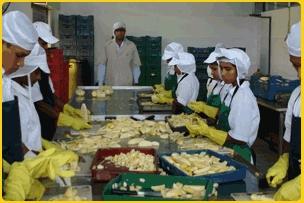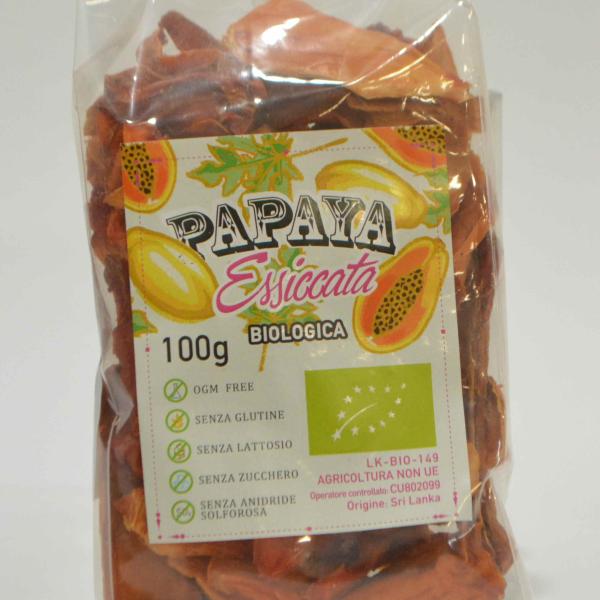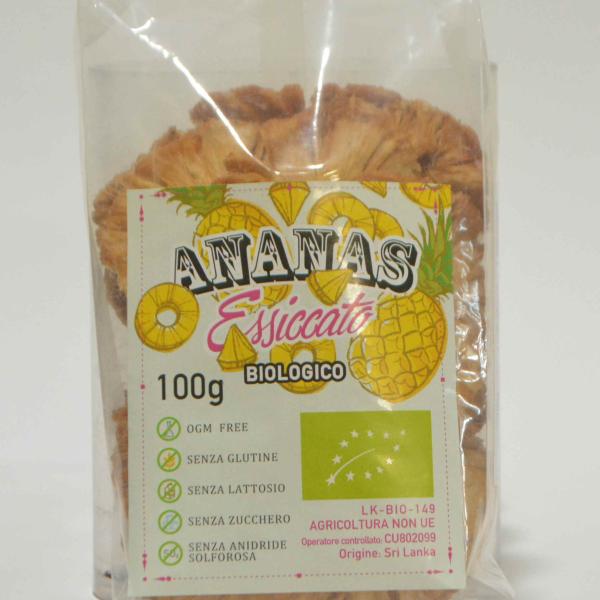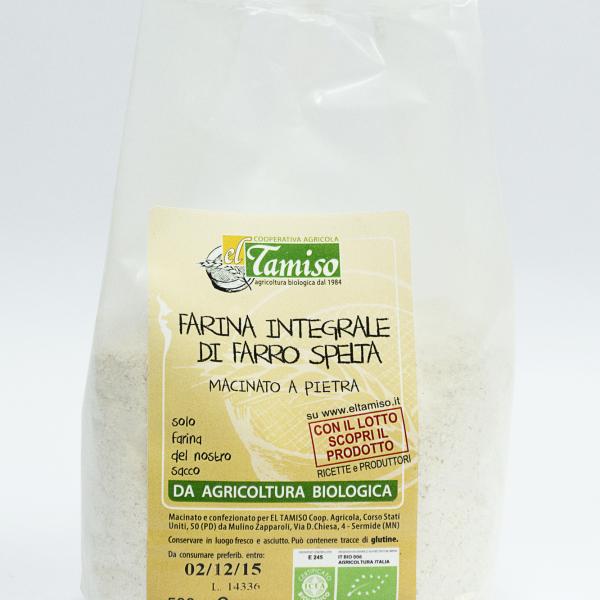In line with the Cooperative's choice to market exotic products that enhance supply chain projects in the places where they are produced and transformed, we present below dehydrated Pineapples and Papayas, processed in relationship with the solidarity company Pripa in Sri Lanka.
The product
What are they?
The most consumed tropical fruits are banana, papaya, mango, perennial species, and pineapple, an annual herbaceous species, and are cultivated in
agroforestry associations with vegetables and shrubs such as coffee, cacao, cinnamon, in rural areas of the tropics.
Who produces them?
Small producers cultivate fruit using organic methods working in close relationship with the
bio-solidarity company Pripa, in Sri Lanka. The following processes take place inside certified plants:
- selection, washing, cutting are done
manually,
- packaging in a controlled atmosphere,
- dehydration below 44°C.
The entire supply chain is
free of gluten, sulfur dioxide and other allergens.
Why is it good for you?
Fruit dried at low temperatures, not in the sun,
concentrates almost 10 times the nutritional values of fresh fruit. It is considered
“raw”: even if part of the vitamins is lost with oxidation, the dehydrated pieces of fruit preserve all the
sugars, fibers, minerals and many aromas and antioxidants found in fresh fruit.
- Dried pineapple is very rich in vitamin C, iron, calcium and potassium.
- Dried papaya is rich in vitamin A, iron and calcium.
How do you eat?
With or without soaking, it is eaten alone or together with dried fruit as a rich energy snack/snack, also excellent as a garnish for ice cream and desserts. Food highly valued in macrobiotic, raw food, vegan cuisine, but also energy for young people and athletes.
The supplier
Pripa is a
bio-solidarity company founded in 1997 by Sinhalese: with production offices in Sri Lanka and Thailand and commercial headquarters in Germany.
In Sri Lanka, he works closely with more than 300 farmers with plots from 4 to 40 hectares that reside mainly in the province of Urapola, where Pripa supports associations and implements social projects for child health, environmental education and sustainable development.
All processes (selection, washing, cutting) are carried out
manually, and also dehydration and packaging in a controlled atmosphere take place on site.
Dehydration occurs below 44°C.
The processing plants only process
foods without gluten, sulfur dioxide and other allergens.








